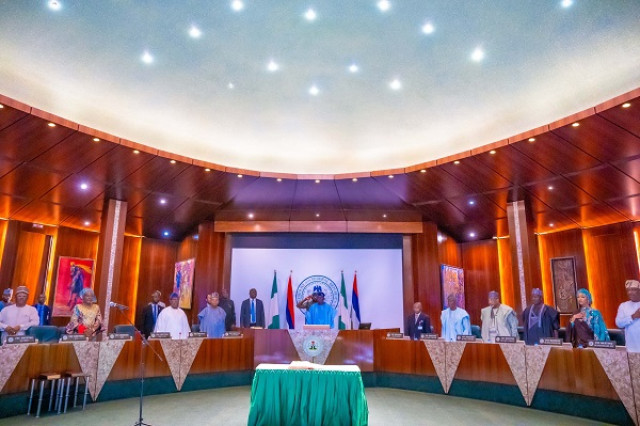The Federal Government has mandated that all new vehicles, generators, and tricycles being purchased by its ministries, departments and agencies must run on Compressed Natural Gas (CNG), solar, or electric power.
Presidential sources said that the directive was part of the Federal Executive Council meeting, yesterday.
The source disclosed that the decision will be immediately implemented following requests from the Nigeria Customs Service (NCS) and the Nigerian Shipper’s Council, a department of the Ministry of Marine and Blue Economy. Both agencies had requested approval to purchase numerous operational vehicles.
The council, as per another source, granted approval for the requests but specified that the vehicles must be CNG-powered. Additionally, a request from the Federal Capital Territory to procure petrol generators was approved, with the condition that they must be CNG-powered or solar-powered.
The government anticipates that agencies will begin converting petrol or diesel vehicles and generators to CNG. The Tinubu administration, which introduced the Presidential Compressed Natural Gas Initiative (PCNGi) in October, aims to introduce approximately 800 CNG buses, 4,000 CNG tricycles, and 100 electric buses in the initial phase.
By making this decision, the government is indicating its preparedness for an energy transition from fossil fuel to renewable energy. The decision is expected to encourage new investments in renewable energy, solar panels, and lithium batteries.
The government believes that this policy will be environmentally friendly and reduce inflation by cutting costs by around 60 percent. Mohammed Idris, the Minister of Information and National Orientation, stated that the FEC meeting would resume today.
"A number of significant decisions are currently being made and the outcomes will be disclosed tomorrow. As a result, the FEC meeting will continue tomorrow," he stated.
The President chaired the meeting. Over the weekend, Mr. Olawale Edun, the Finance Minister and Coordinating Minister of the Economy, mentioned that the implementation of CNG buses through the PCNGi will result in a considerable decrease in transportation expenses, ultimately aiding in the control of inflation. He made these remarks while visiting the JET Motor Company (JET) Assembly Plant in Lagos, where CNG buses are being put together.
Edun emphasized the substantial cost savings CNG buses provided compared to their petrol-powered counterparts.
"Two important objectives will be accomplished. While it costs around N55,000 to fill a 15-20 seater bus with petrol, it will only cost between N12-15,000 to fill a CNG bus of the same capacity.
This represents a savings of three to four times. This significant reduction will help lower transportation costs and simultaneously contribute to reducing inflation," he explained.
The minister also praised JET for its utilization of local talent and highlighted that the PCNGi is focused on providing affordable mass transit.




















